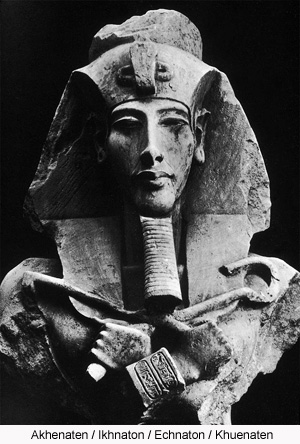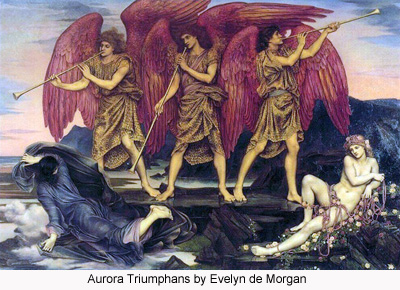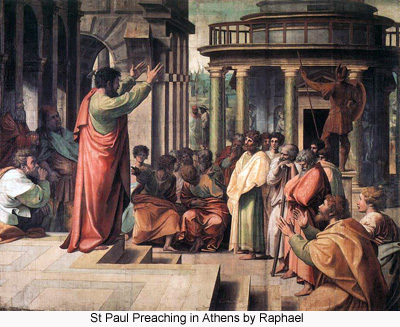
A Planetary Adjustment Needed For Realization of Social Brotherhood
Political wisdom. Emotional maturity is essential to self-control. Only emotional maturity will insure the substitution of international techniques of civilized adjudication for the barbarous arbitrament of war. Wise statesmen will sometime work for the welfare of humanity even while they strive to promote the interest of their national or racial groups. Selfish political sagacity is ultimately suicidal—destructive of all those enduring qualities which insure planetary group survival. ~ The Urantia Book, 52:6.6
Politics and the Beginnings of Capital
Position—eagerness to buy social and political prestige. There early sprang up a commercialized nobility, admission to which depended on the performance of some special service to royalty or was granted frankly for the payment of money. ~ The Urantia Book, 69:5.7
Primitive Clubs and Secret Societies
These societies gave rise to the first political parties. The first party government was "the strong" vs. the weak." In ancient times a change of administration only followed civil war, abundant proof that the weak had become strong. ~ The Urantia Book, 70:7.17
 Moral Values of the Citizenry Determines Successful Politics
Moral Values of the Citizenry Determines Successful Politics
The political or administrative form of a government is of little consequence provided it affords the essentials of civil progress—liberty, security, education, and social co-ordination. It is not what a state is but what it does that determines the course of social evolution. And after all, no state can transcend the moral values of its citizenry as exemplified in their chosen leaders. Ignorance and selfishness will insure the downfall of even the highest type of government. ~ The Urantia Book, 71:3.1
The ideals of statehood must be attained by evolution, by the slow growth of civic consciousness, the recognition of the obligation and privilege of social service. At first men assume the burdens of government as a duty, following the end of the administration of political spoilsmen, but later on they seek such ministry as a privilege, as the greatest honor. The status of any level of civilization is faithfully portrayed by the caliber of its citizens who volunteer to accept the responsibilities of statehood. ~ The Urantia Book, 71:3.10
In advanced states, political service is esteemed as the highest devotion of the citizenry. The greatest ambition of the wisest and noblest of citizens is to gain civil recognition, to be elected or appointed to some position of governmental trust, and such governments confer their highest honors of recognition for service upon their civil and social servants. Honors are next bestowed in the order named upon philosophers, educators, scientists, industrialists, and militarists. Parents are duly rewarded by the excellency of their children, and purely religious leaders, being ambassadors of a spiritual kingdom, receive their real rewards in another world. ~ The Urantia Book, 71:3.12
The only sacred feature of any human government is the division of statehood into the three domains of executive, legislative, and judicial functions. The universe is administered in accordance with such a plan of segregation of functions and authority. Aside from this divine concept of effective social regulation or civil government, it matters little what form of state a people may elect to have provided the citizenry is ever progressing toward the goal of augmented self- control and increased social service. The intellectual keenness, economic wisdom, social cleverness, and moral stamina of a people are all faithfully reflected in statehood. ~ The Urantia Book, 71:8.1
Politics on a Neighboring Planet
By permission of Lanaforge and with the approval of the Most Highs of Edentia, I am authorized to narrate something of the social, moral, and political life of the most advanced human race living on a not far-distant planet belonging to the Satania system. ~ The Urantia Book, 72:0.1
More Politics from the Neighbors:
These people are also beginning to foster a new form of social disgust—disgust for both idleness and unearned wealth. Slowly but certainly they are conquering their machines. Once they, too, struggled for political liberty and subsequently for economic freedom. Now are they entering upon the enjoyment of both while in addition they are beginning to appreciate their well- earned leisure, which can be devoted to increased self-realization. ~ The Urantia Book, 72:5.12
Next to treason and murder, the heaviest penalties meted out by the courts are attached to betrayal of public trust. Social and political disloyalty are now looked upon as being the most heinous of all crimes. ~ The Urantia Book, 72:6.9
...Scientists, inventors, teachers, philosophers, and spiritual leaders are also thus recognized and honored with augmented political power. These advanced civic privileges are conferred by the state and regional supreme councils much as degrees are bestowed by the special colleges, and the recipients are proud to attach the symbols of such civic recognition, along with their other degrees, to their lists of personal achievements. ~ The Urantia Book, 72:9.3
 The Yellow Race - Political Pioneers
The Yellow Race - Political Pioneers
The yellow man was first to achieve a racial solidarity—the first to attain a large-scale cultural, social, and political civilization. ~ The Urantia Book, 79:6.8
The Chinese of 15,000 B.C. were aggressive militarists; they had not been weakened by an overreverence for the past, and numbering less than twelve million, they formed a compact body speaking a common language. During this age they built up a real nation, much more united and homogeneous than their political unions of historic times. ~ The Urantia Book, 79:6.9
Between 4000 and 500 B.C. the political reunification of the yellow race was consummated, but the cultural union of the Yangtze and Yellow River centers had already been effected. This political reunification of the later tribal groups was not without conflict, but the societal opinion of war remained low; ancestor worship, increasing dialects, and no call for military action for thousands upon thousands of years had rendered this people ultrapeaceful. ~ The Urantia Book, 79:8.5
Primitive Politics
In primitive times marriage was the price of social standing; the possession of a wife was a badge of distinction. The savage looked upon his wedding day as marking his entrance upon responsibility and manhood. In one age, marriage has been looked upon as a social duty; in another, as a religious obligation; and in still another, as a political requirement to provide citizens for the state. ~ The Urantia Book, 82:3.4
The primitive family, growing out of the instinctive biologic blood bond of mother and child, was inevitably a mother-family; and many tribes long held to this arrangement. The mother-family was the only possible transition from the stage of group marriage in the horde to the later and improved home life of the polygamous and monogamous father-families. The mother-family was natural and biologic; the father-family is social, economic, and political. The persistence of the mother-family among the North American red men is one of the chief reasons why the otherwise progressive Iroquois never became a real state. ~ The Urantia Book, 84:2.2
Modern civilized races are just emerging from ghost fear as an explanation of luck and the commonplace inequalities of existence. Mankind is achieving emancipation from the bondage of the ghost-spirit explanation of ill luck. But while men are giving up the erroneous doctrine of a spirit cause of the vicissitudes of life, they exhibit a surprising willingness to accept an almost equally fallacious teaching which bids them attribute all human inequalities to political misadaptation, social injustice, and industrial competition. But new legislation, increasing philanthropy, and more industrial reorganization, however good in and of themselves, will not remedy the facts of birth and the accidents of living. Only comprehension of facts and wise manipulation within the laws of nature will enable man to get what he wants and to avoid what he does not want. ~ The Urantia Book, 86:7.4
It was political and moral, rather than philosophic or religious, tendencies that rendered Egypt more favorable to the Salem teaching than Mesopotamia. Each tribal leader in Egypt, after fighting his way to the throne, sought to perpetuate his dynasty by proclaiming his tribal god the original deity and creator of all other gods. In this way the Egyptians gradually got used to the idea of a supergod, a steppingstone to the later doctrine of a universal creator Deity. The idea of monotheism wavered back and forth in Egypt for many centuries, the belief in one God always gaining ground but never quite dominating the evolving concepts of polytheism. ~ The Urantia Book, 95:2.2
 Ikhnaton - If Only...
Ikhnaton - If Only...
Moses, the greatest character between Melchizedek and Jesus, was the joint gift to the world of the Hebrew race and the Egyptian royal family; and had Ikhnaton possessed the versatility and ability of Moses, had he manifested a political genius to match his surprising religious leadership, then would Egypt have become the great monotheistic nation of that age; and if this had happened, it is barely possible that Jesus might have lived the greater portion of his mortal life in Egypt. ~ The Urantia Book, 95:5.3
Had this man of amazingly clear vision and extraordinary singleness of purpose had the political sagacity of Moses, he would have changed the whole history of the evolution of religion and the revelation of truth in the Occidental world. During his lifetime he was able to curb the activities of the priests, whom he generally discredited, but they maintained their cults in secret and sprang into action as soon as the young king passed from power; and they were not slow to connect all of Egypt's subsequent troubles with the establishment of monotheism during his reign. ~ The Urantia Book, 95:5.5
Religion (and the Religionist) In Politics
Religion acieves its highest social ministry when it has least connection with the secular institutions of society. In past ages, since social reforms were largely confined to the moral realms, religion did not have to adjust its attitude to extensive changes in economic and political systems. The chief problem of religion was the endeavor to replace evil with good within the existing social order of political and economic culture. Religion has thus indirectly tended to perpetuate the established order of society, to foster the maintenance of the existent type of civilization. ~ The Urantia Book, 99:0.1
Religionists must function in society, in industry, and in politics as individuals, not as groups, parties, or institutions. A religious group which presumes to function as such, apart from religious activities, immediately becomes a political party, an economic organization, or a social institution. Religious collectivism must confine its efforts to the furtherance of religious causes. ~ The Urantia Book, 99:2.3  The institutionalized church may have appeared to serve society in the past by glorifying the established political and economic orders, but it must speedily cease such action if it is to survive. Its only proper attitude consists in the teaching of nonviolence, the doctrine of peaceful evolution in the place of violent revolution—peace on earth and good will among all men. ~ The Urantia Book, 99:2.5
The institutionalized church may have appeared to serve society in the past by glorifying the established political and economic orders, but it must speedily cease such action if it is to survive. Its only proper attitude consists in the teaching of nonviolence, the doctrine of peaceful evolution in the place of violent revolution—peace on earth and good will among all men. ~ The Urantia Book, 99:2.5
Early Christianity was entirely free from all civil entanglements, social commitments, and economic alliances. Only did later institutionalized Christianity become an organic part of the political and social structure of Occidental civilization.
The kingdom of heaven is neither a social nor economic order; it is an exclusively spiritual brotherhood of God-knowing individuals. True, such a brotherhood is in itself a new and amazing social phenomenon attended by astounding political and economic repercussions.
The religionist is not unsympathetic with social suffering, not unmindful of civil injustice, not insulated from economic thinking, neither insensible to political tyranny. Religion influences social reconstruction directly because it spiritualizes and idealizes the individual citizen. Indirectly, cultural civilization is influenced by the attitude of these individual religionists as they become active and influential members of various social, moral, economic, and political groups.
The attainment of a high cultural civilization demands, first, the ideal type of citizen and, then, ideal and adequate social mechanisms wherewith such a citizenry may control the economic and political institutions of such an advanced human society. ~ The Urantia Book, 99:3.4
Religionists, as a group, must never concern themselves with anything but religion, albeit any one such religionist, as an individual citizen, may become the outstanding leader of some social, economic, or political reconstruction movement. ~ The Urantia Book, 99:3.15
Political science must effect the reconstruction of economics and industry by the techniques it learns from the social sciences and by the insights and motives supplied by religious living. In all social reconstruction religion provides a stabilizing loyalty to a transcendent object, a steadying goal beyond and above the immediate and temporal objective. In the midst of the confusions of a rapidly changing environment mortal man needs the sustenance of a far-flung cosmic perspective. ~ The Urantia Book, 99:7.2
 The Angels of Politics
The Angels of Politics
The angels of nation life. These are the "angels of the trumpets," directors of the political performances of Urantia national life. The group now functioning in the overcontrol of international relations is the fourth corps to serve on the planet. It is particularly through the ministry of this seraphic division that "the Most Highs rule in the kingdoms of men."~ The Urantia Book, 114:6.8
Jesus is Advised by Emmanuel About Politics and His Bestowal
In your relations to the social order we advise that you confine your efforts largely to spiritual regeneration and intellectual emancipation. Avoid all entanglements with the economic structure and the political commitments of your day. More especially devote yourself to living the ideal religious life on Urantia. ~ The Urantia Book, 120:3.4
Jesus' Teachings About Political Sovereignty
(Foreword to the section):
[While the Master's teaching concerning the sovereignty of God is a truth—only complicated by the subsequent appearance of the religion about him among the world's religions—his presentations concerning political sovereignty are vastly complicated by the political evolution of nation life during the last nineteen hundred years and more. In the times of Jesus there were only two great world powers—the Roman Empire in the West and the Han Empire in the East—and these were widely separated by the Parthian kingdom and other intervening lands of the Caspian and Turkestan regions. We have, therefore, in the following presentation departed more widely from the substance of the Master's teachings at Urmia concerning political sovereignty, at the same time attempting to depict the import of such teachings as they are applicable to the peculiarly critical stage of the evolution of political sovereignty in the twentieth century after Christ.] ~ The Urantia Book, 134:5.1
Please go HERE for the teachings
Law, Liberty and Sovereignty - and Politics
Religion makes it spiritually possible to realize the brotherhood of men, but it will require mankind government to regulate the social, economic, and political problems associated with such a goal of human happiness and efficiency.
 There shall be wars and rumors of wars — nation will rise against nation — just as long as the world's political sovereignty is divided up and unjustly held by a group of nation-states. England, Scotland, and Wales were always fighting each other until they gave up their respective sovereignties, reposing them in the United Kingdom.~ The Urantia Book, 134:6.2
There shall be wars and rumors of wars — nation will rise against nation — just as long as the world's political sovereignty is divided up and unjustly held by a group of nation-states. England, Scotland, and Wales were always fighting each other until they gave up their respective sovereignties, reposing them in the United Kingdom.~ The Urantia Book, 134:6.2
The political sovereignty of representative mankind government will bring lasting peace on earth, and the spiritual brotherhood of man will forever insure good will among all men. And there is no other way whereby peace on earth and good will among men can be realized. ~ The Urantia Book, 134:6.13
Jesus Decides Against any Political Activity - Part of the Great Decisions
The first thing Jesus did, after thinking through the general plan of co-ordinating his program with John's movement, was to review in his mind the instructions of Immanuel. And Jesus pondered well over Immanuel's advice pertaining to his economic, social, and political attitude toward the world as he should find it. ~ The Urantia Book, 136:4.2
Jesus had traveled much; he recalled Rome, Alexandria, and Damascus. He knew the methods of the world — how people gained their ends in politics and commerce by compromise and diplomacy. Would he utilize this knowledge in the furtherance of his mission on earth? No! ~ The Urantia Book, 136:8.4
Jesus portrayed to all the worlds of his vast universe the folly of creating artificial situations for the purpose of exhibiting arbitrary authority or of indulging exceptional power for the purpose of enhancing moral values or accelerating spiritual progress. Jesus decided that he would not lend his mission on earth to a repetition of the disappointment of the reign of the Maccabees. He refused to prostitute his divine attributes for the purpose of acquiring unearned popularity or for gaining political prestige. He would not countenance the transmutation of divine and creative energy into national power or international prestige. Jesus of Nazareth refused to compromise with evil, much less to consort with sin. The Master triumphantly put loyalty to his Father's will above every other earthly and temporal consideration. ~ The Urantia Book, 136:8.8
Jesus has formulated a program for the establishment of the Father's kingdom. He will not cater to the physical gratification of the people. He will not deal out bread to the multitudes as he has so recently seen it being done in Rome. He will not attract attention to himself by wonder-working, even though the Jews are expecting just that sort of a deliverer. Neither will he seek to win acceptance of a spiritual message by a show of political authority or temporal power. ~ The Urantia Book, 136:9.11
And Later...
The Master had many talks with Simon, but he never fully succeeded in making an internationalist out of this ardent Jewish nationalist. Jesus often told Simon that it was proper to want to see the social, economic, and political orders improved, but he would always add: "That is not the business of the kingdom of heaven. We must be dedicated to the doing of the Father's will. Our business is to be ambassadors of a spiritual government on high, and we must not immediately concern ourselves with aught but the representation of the will and character of the divine Father who stands at the head of the government whose credentials we bear." ~ The Urantia Book, 139:11.9
 "Happy are the peacemakers, for they shall be called the sons of God." Personal peace integrates personality. Social peace prevents fear, greed, and anger. Political peace prevents race antagonisms, national suspicions, and war. Peacemaking is the cure of distrust and suspicion. ~ The Urantia Book, 140:5.18
"Happy are the peacemakers, for they shall be called the sons of God." Personal peace integrates personality. Social peace prevents fear, greed, and anger. Political peace prevents race antagonisms, national suspicions, and war. Peacemaking is the cure of distrust and suspicion. ~ The Urantia Book, 140:5.18
Political attitude. He cautioned his apostles to be discreet in their remarks concerning the strained relations then existing between the Jewish people and the Roman government; he forbade them to become in any way embroiled in these difficulties. He was always careful to avoid the political snares of his enemies, ever making reply, "Render to Caesar the things which are Caesar's and to God the things which are God's." He refused to have his attention diverted from his mission of establishing a new way of salvation; he would not permit himself to be concerned about anything else. In his personal life he was always duly observant of all civil laws and regulations; in all his public teachings he ignored the civic, social, and economic realms. He told the three apostles that he was concerned only with the principles of man's inner and personal spiritual life.
Jesus was not, therefore, a political reformer. He did not come to reorganize the world; even if he had done this, it would have been applicable only to that day and generation. Nevertheless, he did show man the best way of living, and no generation is exempt from the labor of discovering how best to adapt Jesus' life to its own problems. But never make the mistake of identifying Jesus' teachings with any political or economic theory, with any social or industrial system. ~ The Urantia Book, 140:8.9
...if Jesus were on earth today, living his life in the flesh, he would be a great disappointment to the majority of good men and women for the simple reason that he would not take sides in present-day political, social, or economic disputes. He would remain grandly aloof while teaching you how to perfect your inner spiritual life so as to render you manyfold more competent to attack the solution of your purely human problems. ~ The Urantia Book, 140:8.17
Other Advice
This new religion of Jesus was not without its practical implications, but whatever of practical political, social, or economic value there is to be found in his teaching is the natural outworking of this inner experience of the soul as it manifests the fruits of the spirit in the spontaneous daily ministry of genuine personal religious experience. ~ The Urantia Book, 140:10.6
So long as the rulers of earthly governments seek to exercise the authority of religious dictators, you who believe this gospel can expect only trouble, persecution, and even death. But the very light which you bear to the world, and even the very manner in which you will suffer and die for this gospel of the kingdom, will, in themselves, eventually enlighten the whole world and result in the gradual divorcement of politics and religion. The persistent preaching of this gospel of the kingdom will some day bring to all nations a new and unbelievable liberation, intellectual freedom, and religious liberty. ~ The Urantia Book, 178:1.9
What Jesus Did
Jesus transcended all the teachings of his forebears when he boldly substituted clean hearts for clean hands as the mark of true religion. He put reality in the place of tradition and swept aside all pretensions of vanity and hypocrisy. And yet this fearless man of God did not give vent to destructive criticism or manifest an utter disregard of the religious, social, economic, and political usages of his day. He was not a militant revolutionist; he was a progressive evolutionist. He engaged in the destruction of that which was only when he simultaneously offered his fellows the superior thing which ought to be. ~ The Urantia Book, 149:2.11
This cleansing of the temple discloses the Master's attitude toward commercializing the practices of religion as well as his detestation of all forms of unfairness and profiteering at the expense of the poor and the unlearned. This episode also demonstrates that Jesus did not look with approval upon the refusal to employ force to protect the majority of any given human group against the unfair and enslaving practices of unjust minorities who may be able to entrench themselves behind political, financial, or ecclesiastical power. Shrewd, wicked, and designing men are not to be permitted to organize themselves for the exploitation and oppression of those who, because of their idealism, are not disposed to resort to force for self- protection or for the furtherance of their laudable life projects. ~ The Urantia Book, 173:1.11
 Paul, The Greeks, and Politics
Paul, The Greeks, and Politics
The Hellenization of Christianity started in earnest on that eventful day when the Apostle Paul stood before the council of the Areopagus in Athens and told the Athenians about "the Unknown God." There, under the shadow of the Acropolis, this Roman citizen proclaimed to these Greeks his version of the new religion which had taken origin in the Jewish land of Galilee. And there was something strangely alike in Greek philosophy and many of the teachings of Jesus. They had a common goal — both aimed at the emergence of the individual. The Greek, at social and political emergence; Jesus, at moral and spiritual emergence. The Greek taught intellectual liberalism leading to political freedom; Jesus taught spiritual liberalism leading to religious liberty. These two ideas put together constituted a new and mighty charter for human freedom; they presaged man's social, political, and spiritual liberty. ~ The Urantia Book, 195:1.1
The Greek revered beauty, the Jew holiness, but both peoples loved truth. For centuries the Greek had seriously thought and earnestly debated about all human problems — social, economic, political, and philosophic — except religion. Few Greeks had paid much attention to religion; they did not take even their own religion very seriously. For centuries the Jews had neglected these other fields of thought while they devoted their minds to religion. They took their religion very seriously, too seriously. As illuminated by the content of Jesus' message, the united product of the centuries of the thought of these two peoples now became the driving power of a new order of human society and, to a certain extent, of a new order of human religious belief and practice.
The influence of Greek culture had already penetrated the lands of the western Mediterranean when Alexander spread Hellenistic civilization over the near-Eastern world. The Greeks did very well with their religion and their politics as long as they lived in small city-states, but when the Macedonian king dared to expand Greece into an empire, stretching from the Adriatic to the Indus, trouble began. The art and philosophy of Greece were fully equal to the task of imperial expansion, but not so with Greek political administration or religion. After the city-states of Greece had expanded into empire, their rather parochial gods seemed a little queer. The Greeks were really searching for one God, a greater and better God, when the Christianized version of the older Jewish religion came to them.
The Hellenistic Empire, as such, could not endure. Its cultural sway continued on, but it endured only after securing from the West the Roman political genius for empire administration and after obtaining from the East a religion whose one God possessed empire dignity. ~ The Urantia Book, 195:1.6
The Roman Rule, Politics and Christianity
Much of the early persecution of Christians in Rome was due solely to their unfortunate use of the term "kingdom" in their preaching. The Romans were tolerant of any and all religions but very resentful of anything that savored of political rivalry. And so, when these early persecutions, due so largely to misunderstanding, died out, the field for religious propaganda was wide open. The Roman was interested in political administration; he cared little for either art or religion, but he was unusually tolerant of both. ~ The Urantia Book, 195:2.2
A succession of Greek-cultural and Roman-political victories had consolidated the Mediterranean lands into one empire, with one language and one culture, and had made the Western world ready for one God. Judaism provided this God, but Judaism was not acceptable as a religion to these Romanized Greeks. Philo helped some to mitigate their objections, but Christianity revealed to them an even better concept of one God, and they embraced it readily. ~ The Urantia Book, 195:2.9
After the consolidation of Roman political rule and after the dissemination of Christianity, the Christians found themselves with one God, a great religious concept, but without empire. The Greco- Romans found themselves with a great empire but without a God to serve as the suitable religious concept for empire worship and spiritual unification. The Christians accepted the empire; the empire adopted Christianity. The Roman provided a unity of political rule; the Greek, a unity of culture and learning; Christianity, a unity of religious thought and practice. ~ The Urantia Book, 195:3.1
The church, being an adjunct to society and the ally of politics, was doomed to share in the intellectual and spiritual decline of the so-called European "dark ages." During this time, religion became more and more monasticized, asceticized, and legalized. In a spiritual sense, Christianity was hibernating. Throughout this period there existed, alongside this slumbering and secularized religion, a continuous stream of mysticism, a fantastic spiritual experience bordering on unreality and philosophically akin to pantheism. ~ The Urantia Book, 195:4.1
No social system or political regime which denies the reality of God can contribute in any constructive and lasting manner to the advancement of human civilization. But Christianity, as it is subdivided and secularized today, presents the greatest single obstacle to its further advancement; especially is this true concerning the Orient. ~ The Urantia Book, 195:10.7
But there is no excuse for the involvement of the church in commerce and politics; such unholy alliances are a flagrant betrayal of the Master. And the genuine lovers of truth will be slow to forget that this powerful institutionalized church has often dared to smother newborn faith and persecute truth bearers who chanced to appear in unorthodox raiment.~ The Urantia Book, 195:10.13
Modern-Day Politics and Religion
But religious leaders are making a great mistake when they try to call modern man to spiritual battle with the trumpet blasts of the Middle Ages. Religion must provide itself with new and up-to-date slogans. Neither democracy nor any other political panacea will take the place of spiritual progress. False religions may represent an evasion of reality, but Jesus in his gospel introduced mortal man to the very entrance upon an eternal reality of spiritual progression. ~ The Urantia Book, 195:6.10
Secularism and Politics
It required a great power, a mighty influence, to free the thinking and living of the Western peoples from the withering grasp of a totalitarian ecclesiastical domination. Secularism did break the bonds of church control, and now in turn it threatens to establish a new and godless type of mastery over the hearts and minds of modern man. The tyrannical and dictatorial political state is the direct offspring of scientific materialism and philosophic secularism. Secularism no sooner frees man from the domination of the institutionalized church than it sells him into slavish bondage to the totalitarian state. Secularism frees man from ecclesiastical slavery only to betray him into the tyranny of political and economic slavery. ~ The Urantia Book, 195:8.4
The inherent weakness of secularism is that it discards ethics and religion for politics and power. You simply cannot establish the brotherhood of men while ignoring or denying the fatherhood of God. ~ The Urantia Book, 195:8.11
Secular social and political optimism is an illusion. Without God, neither freedom and liberty, nor property and wealth will lead to peace. ~ The Urantia Book, 195:8.12
Christianity suffers under a great handicap because it has become identified in the minds of all the world as a part of the social system, the industrial life, and the moral standards of Western civilization; and thus has Christianity unwittingly seemed to sponsor a society which staggers under the guilt of tolerating science without idealism, politics without principles, wealth without work, pleasure without restraint, knowledge without character, power without conscience, and industry without morality. ~ The Urantia Book, 195:10.20
The Vorondadek Sons and Earth Politics
Often a corps of twelve or more Vorondadek Sons sits en banc as a high court of review and appeal concerning special cases involving the status of a planet or a system. But their work more largely pertains to the legislative functions indigenous to the constellation governments. As a result of all these services, the Vorondadek Sons have become the historians of the local universes; they are personally familiar with all the political struggles and the social upheavals of the inhabited worlds. ~ The Urantia Book, 35:5.7


